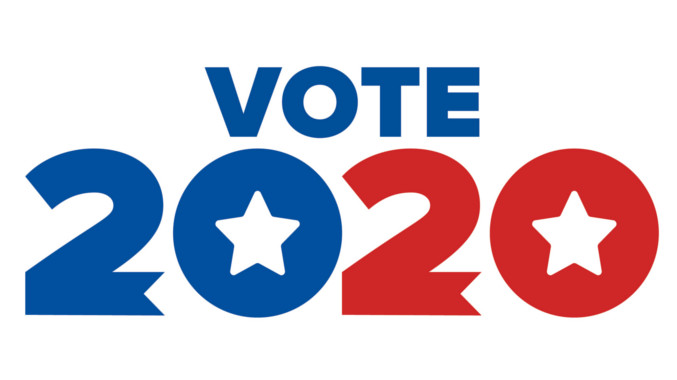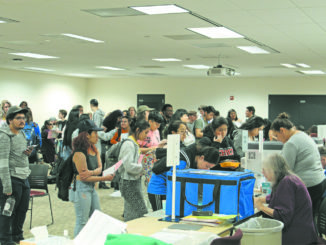

There is a lot weighing on Butte County voters in 2020. City and town council seats will be filled by candidates tasked with leading our communities through economic, pandemic and wildfire recoveries. Billions of dollars worth of decisions are at stake in state propositions. And choices for representation at the national level are between leaders eager to guide a broken country through recovery and those who appear prepared to continue to tear it down with divisive agendas.
With all that in mind, the editorial team has compiled the Chico News & Review’s endorsements for the 2020 general election. We couldn’t fit every item on the ballot in this space, but the races and propositions that are featured have been carefully considered. Due to circumstances surrounding the COVID-19 pandemic, the CN&R wasn’t able to do its traditional in-person interviews with candidates, so we’ve limited our endorsement of local offices to the Chico City Council. We’ve based our choices on responses to this newspaper’s email Q&A (“Ten-four!“), online candidate forums and radio interviews, and the experience of CN&R reporters who’ve covered council and this race.
As always, we encourage voters do their own research. A good starting point is the Butte County League of Women Voters website (my.lwv.org/california/butte-county) and its links to online local candidate forums as well the Voter’s Edge voter-information site. Vote! Our lives depend on it.
President and Vice President: Joe Biden and Kamala Harris
It might be overly dramatic to say the choice for president in 2020 is between good and evil, but that’s what it feels like. Over the course of his first term, President Donald Trump’s policies have degraded many important aspects of life—health, the environment, human rights—in this country and the world (see “Worst of the worst”), and he’s actively pitted Americans against each other while making it clear that he is only president of the people who agree with him.
Joe Biden isn’t an angel, but he does have empathy (imagine that!?), and he has the experience to make good on his plans to enact policies that help all Americans—not just the rich ones—succeed. You know, like a leader.
U.S. Representative, District 1: Audrey Denney
We endorsed her over incumbent Doug LaMalfa in 2018, and we still choose this smart and energetic visionary who has the best interests of all North State residents—from farmers and ranchers to college students and working mothers—at heart, and isn’t beholden to corporate interests like Trump toadie LaMalfa. District 1 deserves a change.
Chico City Council: Curtis Pahlka for District 1, Ann Schwab for District 3, Lauren Kohler for District 5, Rich Ober for District 7.
In this first district-based election, four of the seven district seats are open, and Citizens For a Safe Chico (CFSC) has raised a ton of money (more than $200,000) to make sure all four go to a slate of candidates its touting under the banner of “Safe/Save Chico.” It’s a shallow attempt by the political action committee to frame this as a one-issue race in a way that suggests the more conservative candidates will keep you safe while the more liberal candidates will not. That is of course, ridiculous: Every candidate is committed to public safety. Most concur on syringe exchange versus syringe distribution (the latter was a state, not a city, program anyway); all are committed to a long-term solution for the unhoused that doesn’t include allowing camping in the park.
Two on on the CFSC slate—newcomers Kami Denlay in District 3 and Deepika Tandon in District 7—offer little in terms of relevant experience for the council, especially compared to their challengers. That left Ober standing alone in District 7, and we would have chosen him over most other candidates anyway. The CN&R endorsed his 2018 bid for the council, and we still appreciate his breadth of experience—multiple nonprofit boards and city commissions, community organizer—as well his commitment to environmental issues and sharp mind for problem-solving.
The three other newbies—Pahlka (D1), Steven Breedlove (D3) and Kohler (D5)—are impressive in their own rights. We chose Pahlka over incumbent Sean Morgan for the empathy he brings to social issues (having experienced food insecurity as a child growing up in poverty) and his ideas on overcoming partisan divisiveness on the panel (a pot Morgan is known to stir) by committing to dialogue even during a disagreement. We gave the nod to Kohler over Randall Stone, an incumbent whom the CN&R has previously endorsed, but whose combative approach has worn thin to the point that his fellow councilmembers voted to remove him from his mayoral post last spring. Kohler’s business and social-service experience, notably her on-the-ground work with the homeless, dovetail with challenges the city faces.
District 3 presented the most difficult decision. We like both Breedlove and the incumbent Schwab. Even though they might differ (wildly, in some cases) on the best path forward, they are both committed to acting now to address homelessness and climate change and both advocate for additional crisis resources instead of just more police. The editorial staff wasn’t all in agreement, but the majority agreed that Schwab’s experience and her ability to navigate partisanship on the panel tipped the scale. She was instrumental in guiding the city through the Great Recession, and that talent will be needed as the council addresses the current economic crisis.
State propositions:
Prop. 14 (stem cell research bond): Yes. $5 billion bond ($7.8 billion total cost) to extend California Institute for Regenerative Medicine’s stem-cell research. Despite the fact that it’s a lot of money to spend at a time when a lot of Californians are out of work, the potential benefits of developing treatments for everything from Parkinson’s to blindness is too important to let the program shut down.
Prop. 15 (change how taxes are assessed for commercial/industrial properties): Yes. Assess property tax on big businesses (those with property worth more than $3 million) based on current value instead of purchase price. Though some costs will likely be passed down to tenants (i.e., small businesses), the measure would benefit schools and local government services.
Prop. 16 (reinstate affirmative action): Yes. Allow race, sex, color, ethnicity or national origin to be a factor in hiring for public positions, awarding government contracts and college admissions. In nearly every sector in California, the percentage of blacks, Latinos and women in the workplace doesn’t match that in the greater population. If passed, representation would become much more equitable.
Prop. 17 (restores right to vote after completion of prison term): Yes. Once a prisoner is released, they have to work, pay taxes and maneuver in a society governed by laws while on parole. These citizens deserve the right to have a say in matters that impact their lives.
Prop. 18 (17-year-olds get to vote in primary): Yes. Allow those who will be 18 by the November general election to vote in March primaries. It makes sense to encourage engagement with the process and raise interest in the general election in which they’ll participate eight months later.
Prop. 19 (change specific property tax rules): No. Would permit homeowners over 55, the severely disabled and people whose homes were destroyed by wildfire to buy a new home and keep tax-rate from the purchase price of their previous home intact. Sound familiar? It’s almost the same measure realtors put millions behind in 2018 (prop. 5), which was soundly defeated. The new initiative adds the provision of closing a loophole on inherited homes, requiring the heirs to actually live in the house or face reassessment of value (which is probably a good idea). Other than that, however, it’s still legislation that would still create even more inequity in the state’s convoluted property tax system. Besides, current law already allows all the over-55/severely disabled/disaster-stricken folks to get their same tax break as long as the new home is the same value or less as their previous one (and as long as they buy in the same county).
Prop. 20 (parole restrictions and increased felony sentences): No. Would roll back earlier reforms and limit access to parole for some non-violent offenders, bump some property theft crimes from misdemeanor to felony and increase penalties on parole violations. A reversal of previous prison-overcrowding measures previously passed by voters that smells like a prison-spending scheme, one that would of course disproportionately impact people of color negatively.
Prop. 21 (expand rent control for local governments): Yes. Allows cities to enact rent control policies above and beyond state standard in order to meet a community’s specific needs. In inflated markets like Chico’s, the ability to establish local limits could become the difference between having a roof over one’s head and being homeless.
Prop. 22 (exempt app-based transportaion and delivery companies from gig-economy bill): No. An Uber/Lyft/Door Dash/InstaCarts-funded attempt to override AB 5 (gig-economy bill), but just for app-based drivers. We don’t need a piecemeal approach—we need a broad, nuanced solution for all sectors.
Prop. 23 (on-site medical profession at dialysis clinic): Yes. Would create additional safety requirements for kidney dialysis clinics, including having a medical professional on site at all times. There are already strict regulations for dialysis clinics, and imposing more expensive ones could possibly lead to closures of some in critical rural areas. But the additional oversight is needed for this two-company industry with well-documented patient-care and sanitation issues. Besides, with billions of revenues between DaVita and Fresenius, the two companies can afford it.
Prop. 24 (amend consumer privacy laws): No. Changes the 2018 California Consumer Privacy Act that the prop’s supporters say will strengthen its provisions and further protect privacy online. That sounds good, but it’s unclear whether or not that’s what it will do. Enough watchdog groups (ACLU, Consumer Federation of California, Media Alliance, et al.) are ringing alarm bells that the thick (52-page!) measure contains language that would actually make it more difficult to opt-out of having your data collected and make it easier for companies to avoid accountability.
Prop. 25 (get rid of cash bail): Yes. Replaces the cash bail system with an algorithm that determines public-safety and flight risk. Poverty or wealth shouldn’t be determining factors on whether you stay in jail or go home.


Thank you for this. Most helpful. How about CUSD school boatd?
Local teachers support Linda Hovey & Caitlin Dalby.
So excited to see someone young and fresh with new ideas like Lauren Kohler!